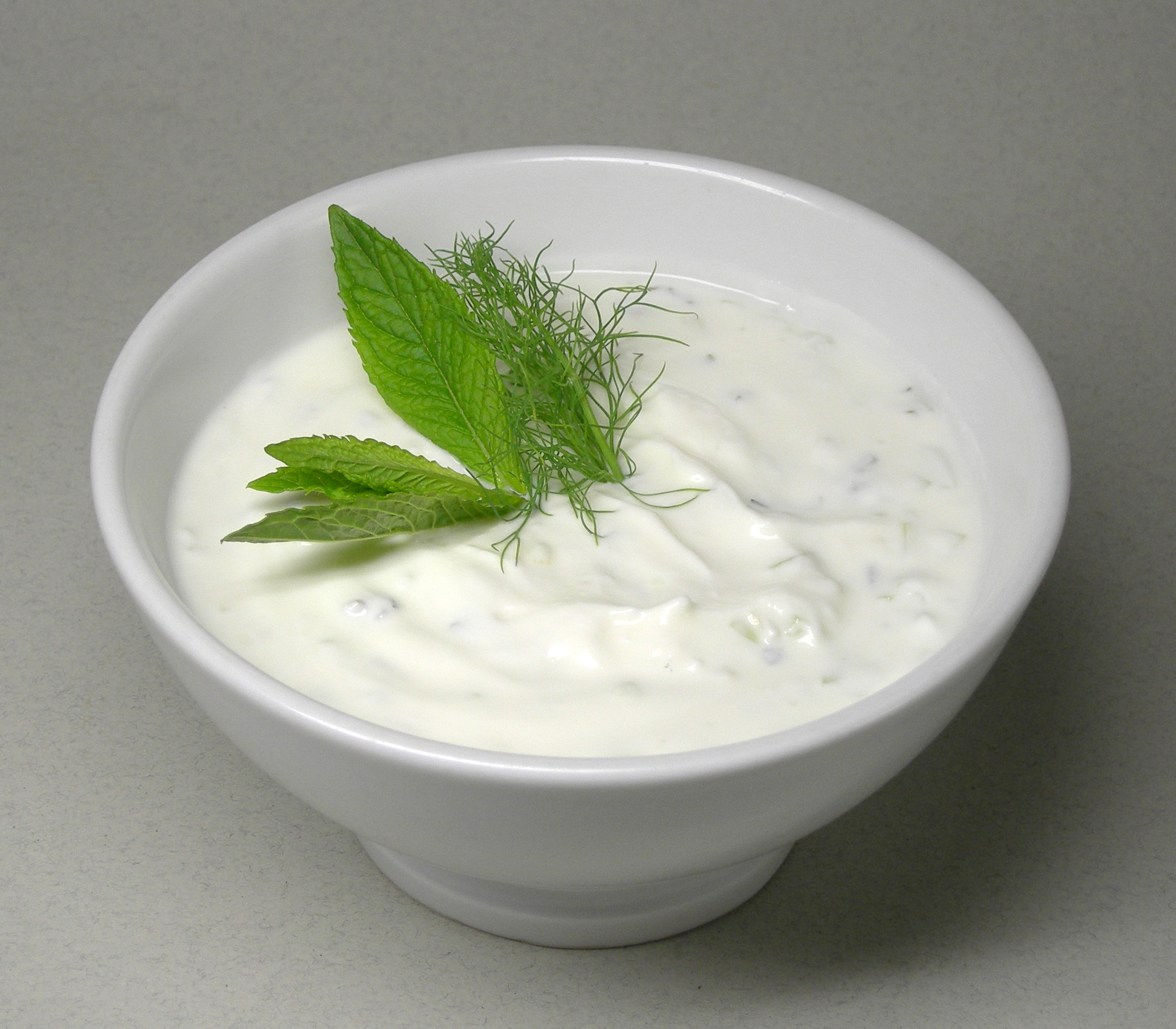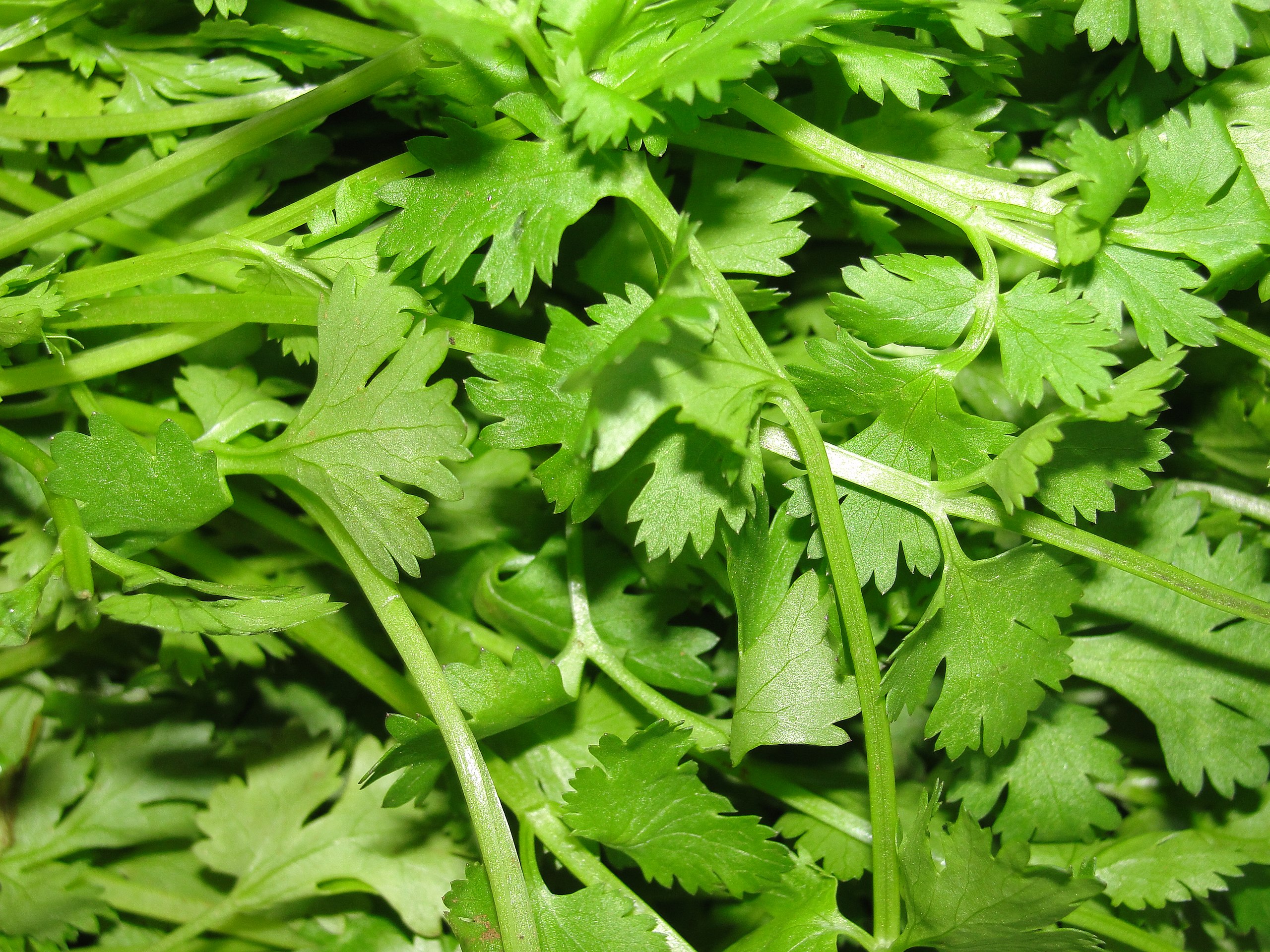Yogurt vs. Cilantro
Nutrition comparison of Yogurt and Cilantro
Ever wonder how your favorite foods stack up against each other in terms of nutrition?
We compared the nutritional contents of
yogurt
versus
cilantro
(100g each)
below using 2020 USDA and NIH data[1].
For a quick recap of significant nutrients and differences in yogurt and cilantro:
- Both cilantro and yogurt are high in calcium.
- Cilantro has 148.7 times less saturated fat than yogurt.
- Cilantro has 62% less calories than yogurt.
- Cilantro has more niacin, Vitamin B6 and folate, however, yogurt contains more Vitamin B12.
- Cilantro has signficantly more iron than yogurt.
- Cilantro is a great source of dietary fiber.
- Cilantro is an excellent source of Vitamin A, Vitamin C, Vitamin K and potassium.
USDA sources for nutritional information: Yogurt (Yogurt, plain, whole milk) and Cilantro (Coriander (cilantro) leaves, raw) . Have a correction or suggestions? Shoot us an email.
Calories and Carbs
calories
Cilantro has 62% less calories than yogurt - cilantro has 23 calories per 100 grams and yogurt has 61 calories.
| Yogurt | Cilantro | |
|---|---|---|
| Protein | 22% | 30% |
| Carbohydrates | 30% | 53% |
| Fat | 48% | 16% |
| Alcohol | ~ | ~ |
carbohydrates
Both cilantro and yogurt are low in carbohydrates - cilantro has 3.7g of total carbs per 100 grams and yogurt has 4.7g of carbohydrates.
The carbs in cilantro are made of 76% dietary fiber and 24% sugar, whereas the carbs in yogurt comprise of 100% sugar.
dietary fiber
Cilantro is a great source of dietary fiber and it has more dietary fiber than yogurt - cilantro has 2.8g of dietary fiber per 100 grams and yogurt does not contain significant amounts.
sugar
Cilantro and yogurt contain similar amounts of sugar - cilantro has 0.87g of sugar per 100 grams and yogurt has 4.7g of sugar.
Protein
protein
Cilantro and yogurt contain similar amounts of protein - cilantro has 2.1g of protein per 100 grams and yogurt has 3.5g of protein.
Fat
saturated fat
Cilantro has 148.7 times less saturated fat than yogurt - cilantro has 0.01g of saturated fat per 100 grams and yogurt has 2.1g of saturated fat.
cholesterol
Cilantro has less cholesterol than yogurt - yogurt has 13mg of cholesterol per 100 grams and cilantro does not contain significant amounts.
Vitamins
Vitamin C
Cilantro is an excellent source of Vitamin C and it has 53 times more Vitamin C than yogurt - cilantro has 27mg of Vitamin C per 100 grams and yogurt has 0.5mg of Vitamin C.
Vitamin A
Cilantro is an excellent source of Vitamin A and it has 11 times more Vitamin A than yogurt - cilantro has 337ug of Vitamin A per 100 grams and yogurt has 27ug of Vitamin A.
Vitamin D
Yogurt and cilantro contain similar amounts of Vitamin D - yogurt has 2iu of Vitamin D per 100 grams and cilantro does not contain significant amounts.
Vitamin E
Cilantro has 40 times more Vitamin E than yogurt - cilantro has 2.5mg of Vitamin E per 100 grams and yogurt has 0.06mg of Vitamin E.
Vitamin K
Cilantro is an excellent source of Vitamin K and it has 1549 times more Vitamin K than yogurt - cilantro has 310ug of Vitamin K per 100 grams and yogurt has 0.2ug of Vitamin K.
The B Vitamins
Cilantro has more niacin, Vitamin B6 and folate, however, yogurt contains more Vitamin B12. Both yogurt and cilantro contain significant amounts of thiamin, riboflavin and pantothenic acid.
| Yogurt | Cilantro | |
|---|---|---|
| Thiamin | 0.029 MG | 0.067 MG |
| Riboflavin | 0.142 MG | 0.162 MG |
| Niacin | 0.075 MG | 1.114 MG |
| Pantothenic acid | 0.389 MG | 0.57 MG |
| Vitamin B6 | 0.032 MG | 0.149 MG |
| Folate | 7 UG | 62 UG |
| Vitamin B12 | 0.37 UG | ~ |
Minerals
calcium
Both cilantro and yogurt are high in calcium. Yogurt has 81% more calcium than cilantro - cilantro has 67mg of calcium per 100 grams and yogurt has 121mg of calcium.
iron
Cilantro has signficantly more iron than yogurt - cilantro has 1.8mg of iron per 100 grams and yogurt has 0.05mg of iron.
potassium
Cilantro is an excellent source of potassium and it has 236% more potassium than yogurt - cilantro has 521mg of potassium per 100 grams and yogurt has 155mg of potassium.
Antioxidants and Phytonutrients
carotenoids
Carotenoids are micronutrients commonly found in plants and some animal products. An example is beta-carotene, the notable carotenoid which is a popular source of Vitamin A.[4][5]
For specific types of carotenoids,
| Yogurt | Cilantro | |
|---|---|---|
| beta-carotene | 5 UG | 3930 UG |
| alpha-carotene | ~ | 36 UG |
| lutein + zeaxanthin | ~ | 865 UG |
Omega-3 and Omega-6
omega 6s
Comparing omega-6 fatty acids, both yogurt and cilantro contain significant amounts of linoleic acid.
| Yogurt | Cilantro | |
|---|---|---|
| linoleic acid | 0.065 G | 0.04 G |
| Total | 0.065 G | 0.04 G |
Customize your serving size
The comparison below is by weight, but sometimes 100g isn't that intuitive of a measurement for food. View a custom portion comparison (e.g. cups, oz, package).
You can try adding or subtracting the amount of either Yogurt or Cilantro .
Yogurt g
()
|
Daily Values (%) |
Cilantro g
()
|
|||||
|---|---|---|---|---|---|---|---|
| KCAL % |
|
5% | calories | 5% |
|
KCAL % | |
| G % |
|
5% | carbohydrates | 5% |
|
G % | |
| G % |
|
5% | dietary fiber | 5% |
|
G % | |
| G | 5% | sugar | 5% | G | |||
| G % |
|
5% | total fat | 5% |
|
G % | |
| G % |
|
5% | saturated fat | 5% |
|
G % | |
| G | 5% | monounsaturated fat | 5% | G | |||
| G | 5% | polyunsaturated fat | 5% | G | |||
| G | 5% | trans fat | 5% | G | |||
| MG | 5% | cholesterol | 5% | MG | |||
| MG % |
|
5% | sodium | 5% |
|
MG % | |
| 5% | Vitamins and Minerals | 5% | |||||
| UG % |
|
5% | Vitamin A | 5% |
|
UG % | |
| MG % |
|
5% | Vitamin C | 5% |
|
MG % | |
| IU % |
|
5% | Vitamin D | 5% |
|
IU % | |
| MG % |
|
5% | calcium | 5% |
|
MG % | |
| MG % |
|
5% | iron | 5% |
|
MG % | |
| MG % |
|
5% | magnesium | 5% |
|
MG % | |
| MG % |
|
5% | potassium | 5% |
|
MG % | |
| MG % |
|
5% | thiamin (Vit B1) | 5% |
|
MG % | |
| MG % |
|
5% | riboflavin (Vit B2) | 5% |
|
MG % | |
| MG % |
|
5% | niacin (Vit B3) | 5% |
|
MG % | |
| MG % |
|
5% | Vitamin B6 | 5% |
|
MG % | |
| MG % |
|
5% | pantothenic acid (Vit B5) | 5% |
|
MG % | |
| UG % |
|
5% | folate (Vit B9) | 5% |
|
UG % | |
| UG % |
|
5% | Vitamin B12 | 5% |
|
UG % | |
| MG % |
|
5% | Vitamin E | 5% |
|
MG % | |
| UG % |
|
5% | Vitamin K | 5% |
|
UG % | |
| G % |
|
5% | protein | 5% |
|
G % | |
| UG % |
|
5% | biotin (Vit B7) | 5% |
|
UG % | |
| MG % |
|
5% | choline | 5% |
|
MG % | |
| MG % |
|
5% | chlorine | 5% |
|
MG % | |
| UG % |
|
5% | chromium | 5% |
|
UG % | |
| MG % |
|
5% | copper | 5% |
|
MG % | |
| UG % |
|
5% | fluoride | 5% |
|
UG % | |
| UG % |
|
5% | iodine | 5% |
|
UG % | |
| MG % |
|
5% | manganese | 5% |
|
MG % | |
| UG % |
|
5% | molybdenum | 5% |
|
UG % | |
| MG % |
|
5% | phosphorus | 5% |
|
MG % | |
| UG % |
|
5% | selenium | 5% |
|
UG % | |
| MG % |
|
5% | zinc | 5% |
|
MG % | |
| G | 5% | Water | 5% | G | |||
| G | 5% | Starch | 5% | G | |||
| G | 5% | Alcohol | 5% | G | |||
FAQ
Does cilantro or yogurt contain more calories in 100 grams?Cilantro has 60% less calories than yogurt - cilantro has 23 calories in 100g and yogurt has 61 calories.
Does cilantro or yogurt have more carbohydrates?
By weight, both cilantro and yogurt are low in carbohydrates - cilantro has 3.7g of carbs for 100g and yogurt has 4.7g of carbohydrates. the carbs in cilantro are made of 80% dietary fiber and 20% sugar, whereas the carbs in yogurt comprise of 100% sugar.
Does cilantro or yogurt contain more calcium?
Both cilantro and yogurt are high in calcium. Yogurt has 80% more calcium than cilantro - cilantro has 67mg of calcium in 100 grams and yogurt has 121mg of calcium.
Does cilantro or yogurt contain more potassium?
Cilantro is a rich source of potassium and it has 240% more potassium than yogurt - cilantro has 521mg of potassium in 100 grams and yogurt has 155mg of potassium.

